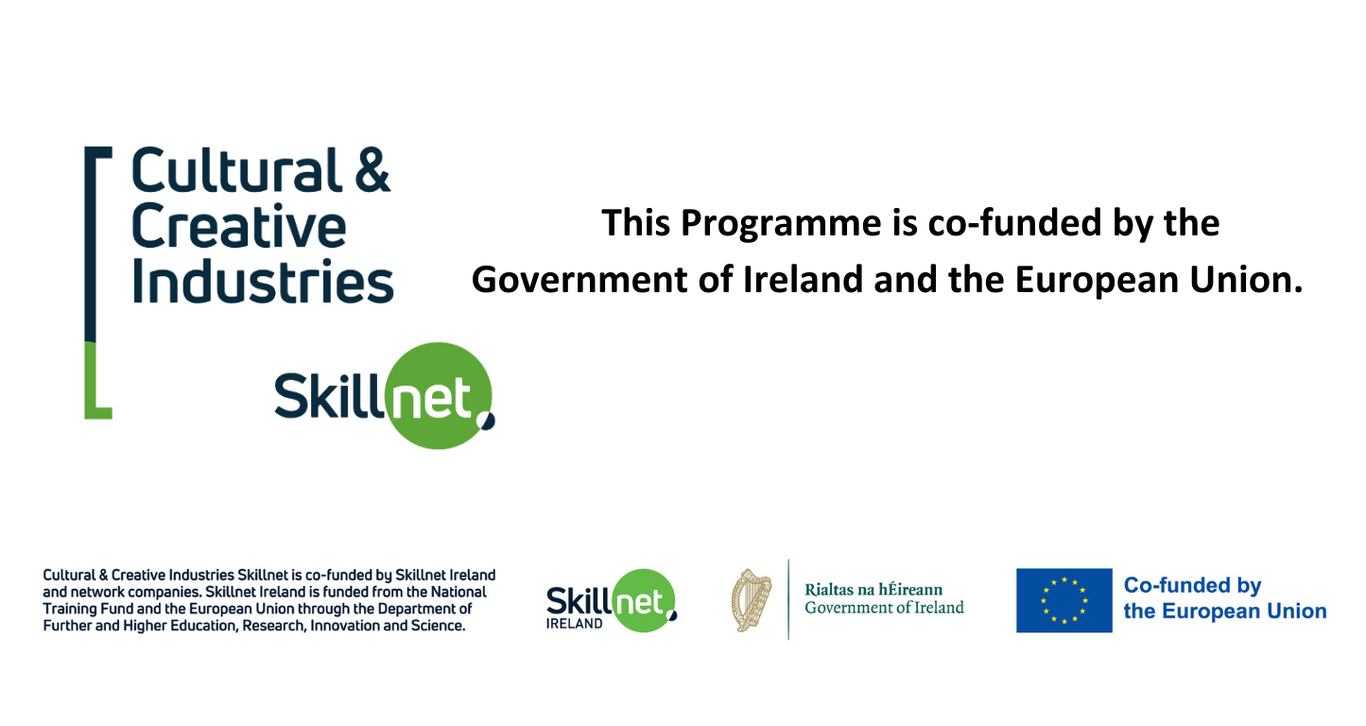Courses
Admissions & Support
Course Search
Courses
Admissions & Support
Course Search
Our Services
Our Community
Course Search
Governance
Professional Services
Status: Apply Now
Location: Online
weeks: 12
Fees: €1,400 – (see Fees section below for Skillnet ESF+ 2025/2026 funding)

This intensive programme provides a comprehensive exploration of creating high end FX work for VFX, CG Animation and Games.
FX work is often complex and requires an exciting mix of technical understanding, artistic sensibilities and creative problem solving. On this course you will learn how to progress from studying natural phenomena to creating art directable FX setups that are reusable, scalable and optimized. Learners will have the space to explore both offline FX work for film and television as well as real-time FX strategies.
This programme goes beyond simply teaching software; it fosters a deep understanding of the principles behind FX creation, looking at foundational concepts such as Rigid body dynamics, Pyro, Particle systems, Fluid dynamics, and more. Students will develop proficiency in both offline and real-time workflows, gaining the versatility to apply their skills across a range of media, from blockbuster films to episodic television and interactive experiences.
The curriculum covers both theoretical principles and practical applications, and is carefully structured to guide students from foundational concepts to advanced techniques, culminating in a building a professional-quality FX showreel.
To check if you are eligible for Skillnet funding . Please click here: Click Here

This programme is designed for individuals with a passion for visual effects and a desire to develop industry-standard skills. Applicants should hold a minimum of a Level 8 honours degree (or equivalent) in a related field, such as animation, film production, game design, or computer graphics.
Prior Experience: While not mandatory, some prior experience in the VFX industry or a related creative field is desirable. This experience could include internships, freelance work, personal projects, or involvement in relevant extracurricular activities.
Recognition of Prior Learning (RPL) will be considered for applicants who may not possess specified academic qualifications but can demonstrate significant relevant experience and skills. In accordance with RPL policy, applications will be assessed on a case-by-case basis, taking into account the nature and duration of prior learning and its alignment with the programme learning outcomes.
ENGLISH LANGUAGE: Applicants who do not have English as their first language must ensure they satisfy English Language requirements. For entry to undergraduate courses, a score of 5.5 in an IELTS or equivalent exam is required. For postgraduate courses, a score of 6.0 in an IELTS or equivalent exam is required. It is the responsibility of the applicant to ensure their English proficiency meets these requirements.
Fundamentals of Fx Creation
Fx is a broad discipline, while it is not practical to cover all aspects of Fx a strong foundation in how FX work is develop from concept through research and execution will allow students to confidently explore new areas of learning. The focus should be for learners to become creative problem solvers that can work iteratively towards a desired look.
Visual Effects Techniques
Exploring a range of FX techniques, including particle simulations, fluid dynamics, rigid body dynamics, and realtime fx work, using software like Houdini and Maya.
Real-Time Fx
Gaining hands-on experience with game engines like Unity or Unreal Engine. Learner will create shaders and particle systems and gain an understanding of how we can leverage assets from Houdini or Maya in the creation of meshes and textures.
Lighting and Rendering for VFX
We explore the intricacies of lighting and rendering for fx work. Students will learn about fx lighting considerations such as lighting smoke or particles. They will learn how to optimise their renders for speed and quality. Consideration will be given to presenting work as part of a demo reel for potential employers.
Industry Projects and Showreel Development
Throughout the programme, students will have the opportunity to apply their skills to industry style projects, These projects will challenge students to solve creative problems, meet deadlines, and produce professional-quality VFX work. The culmination of the programme will involve the creation of a professional showreel, showcasing each student’s technical abilities and artistic vision.
Equipment
Materials: while the course is focused on producing digital content some pencils and a sketchbook can be useful for developing early visual development.
Equipment: while students will primarily use their own computers, with industry-standard software packages, including Autodesk Maya, Foundry Nuke and Houdini.
Communication and Participation
In addition to Moodle, the programme will leverage Microsoft Teams to foster communication and collaboration. Teams will be used for live lectures, Q&A sessions, group projects, and one-on-one consultations with lecturers. This blended approach ensures a dynamic and engaging learning experience for all students.
Modules are to be delivered over 12 weeks in an online learning format.
*** There will be a 1 hour induction session on 18th December 2025 at 7pm ***
Classes will take place on Tuesday evenings from 7pm to 10pm, for a duration of 12 weeks, from 20th January to 21st April 2026.
Please note that the proposed delivery schedule is subject to change.
Each 5 credits will normally equate to approximately 100 Total Learning Hours. Total Learning Hours includes the time you spend in class (lectures, tutorials, practical elements) and the time you spend completing work outside of college. The balance between these two varies by discipline, and by level of study. You should bear in mind that the workload will increase at particular times e.g. when assignments are due.
This programme employs a variety of assessment methods to gauge student learning and provide opportunities for them to demonstrate their understanding and application of key concepts and technical skills. Assessment strategies include:
Certificate in FX for Film & TV (Special Purpose Award – Level 9, 10 ECTS)
€1,400 or €300 if eligible for Skillnet Funding.
This programme has secured part funding through Cultural & Creative Industries Skillnet in 2025 / 26. In order to qualify for the reduced fee of €300 i.e. full course fee of €1,400 minus Skillnet discount of €1,100 you must:
Once your application has been successful and you accept TUS’s offer of a place on the programme you will be provided with a registration link to establish your eligibility with Cultural & Creative Industries Skillnet and secure the discounted rate.
For the link to the Cultural and Creative Industries Skillnet page please click here.
Places are allocated on a first come first served basis.
Applications will be accepted until Monday 8th December or until the maximum number of applicants is reached.
Courses run subject to viable numbers.